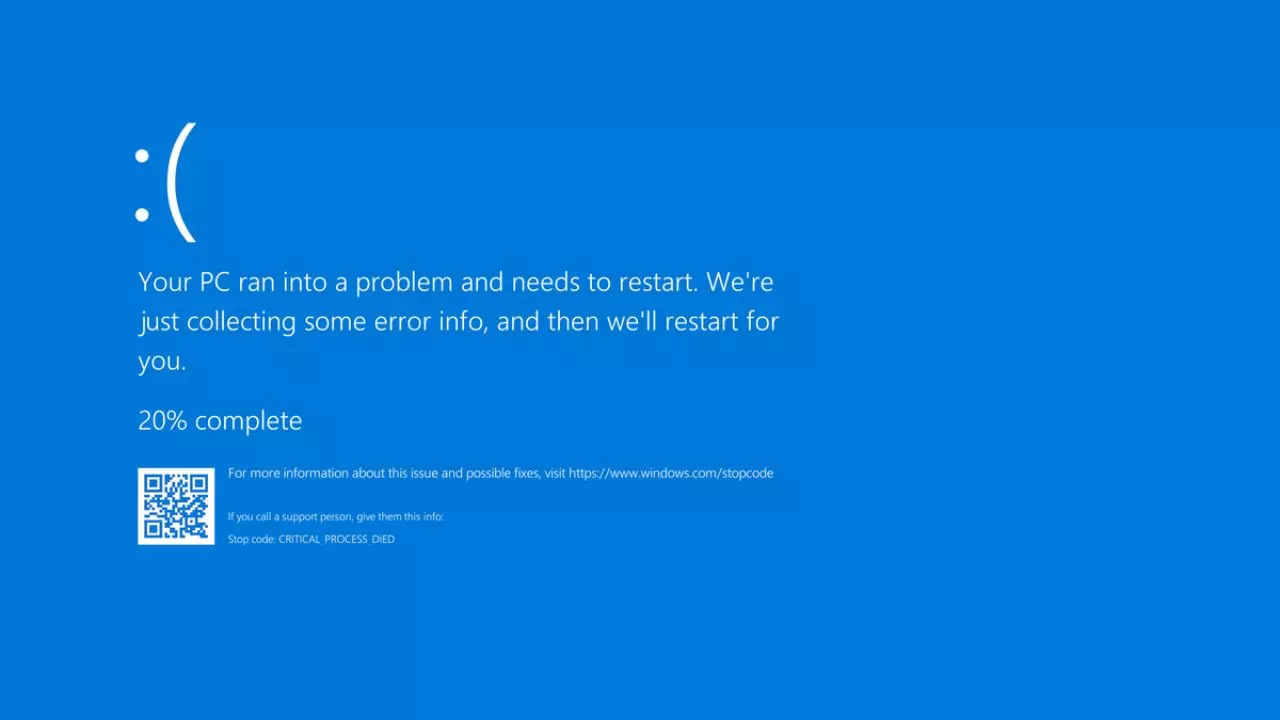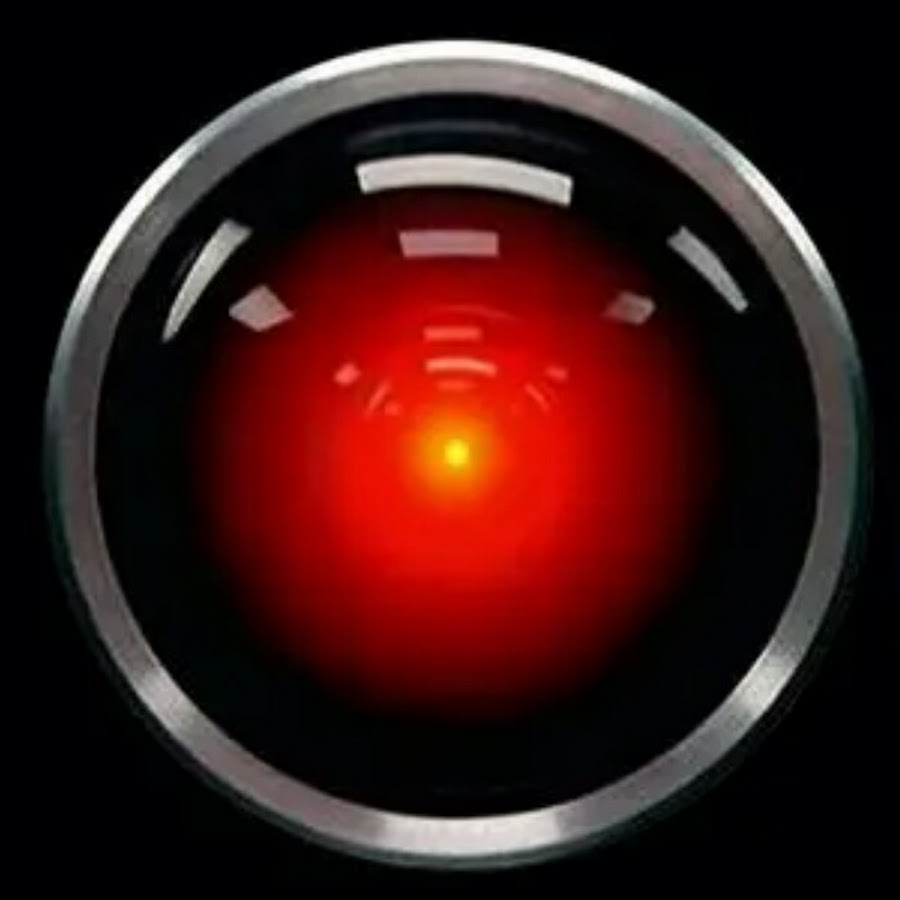This isn’t a gloat post. In fact, I was completely oblivious to this massive outage until I tried to check my bank balance and it wouldn’t log in.
Apparently Visa Paywave, banks, some TV networks, EFTPOS, etc. have gone down. Flights have had to be cancelled as some airlines systems have also gone down. Gas stations and public transport systems inoperable. As well as numerous Windows systems and Microsoft services affected. (At least according to one of my local MSMs.)
Seems insane to me that one company’s messed up update could cause so much global disruption and so many systems gone down :/ This is exactly why centralisation of services and large corporations gobbling up smaller companies and becoming behemoth services is so dangerous.

Didn’t Cloudstrike have a bad update to Debian systems back in April this year that caused a lot of problems? I don’t think it was a big thing since not as many companies are using Cloudstrike on Debian.
Sounds like the issue here is Cloudstrike and not Windows.
A crowdstrike update killed a bunch of our Linux VMs that had a newer kernel a month or so ago.
They didn’t even bother to do a gradual rollout, like even small apps do.
They didn’t even bother to test their stuff, must have pushed to prod
(Technically, test in prod)
Everyone has a test environment
Some are lucky enough to also have a separate production environment
*crowdstrike
Same here. I was totally busy writing software in a new language and a new framework, and had a gazillion tabs on Google and stackexchange open. I didn’t notice any network issues until I was on my way home, and the windows f-up was the one big thing in the radio news. Looks like Windows admins will have a busy weekend.
Only if they manage Crowdstrike systems, thankfully.
I wanted to share the article with friends and copy a part of the text I wanted to draw attention to but the asshole site has selection disabled. Now I will not do that and timesnownews can go fuck themselves
It is annoying. Some possible solutions:
On desktop: Using Shift + ALT you often can overrule this and select text anyway.
On mobile: Using the reader mode or the Print preview often works. It does for me on this website.
The firefox reader mode button doesn’t show up for me on that site. I wonder if its just a poor site or if they are intentionally trying to break it.
Could be both. You can enforce it: https://addons.mozilla.org/en-US/firefox/addon/activate-reader-view/
heres the entire article
Latest Crowdstrike Update Issue: Many Windows users are experiencing Blue Screen of Death (BSOD) errors due to a recent CrowdStrike update. The issue affects various sensor versions, and CrowdStrike has acknowledged the problem and is investigating the cause, as stated in a pinned message on the company’s forum.
Who Have Been Affected
Australian banks, airlines, and TV broadcasters first reported the issue, which quickly spread to Europe as businesses began their workday. UK broadcaster Sky News couldn’t air its morning news bulletins, while Ryanair experienced IT issues affecting flight departures. In the US, the Federal Aviation Administration grounded all Delta, United, and American Airlines flights due to communication problems, and Berlin airport warned of travel delays from technical issues.
In India too, numerous IT organisations were reporting in issues with company-wide. Akasa Airlines and Spicejet experienced technical issues affecting online services. Akasa Airlines’ booking and check-in systems were down at Mumbai and Delhi airports due to service provider infrastructure issues, prompting manual check-in and boarding. Passengers were advised to arrive early, and the airline assured swift resolution. Spicejet also faced problems updating flight disruptions, actively working to fix the issue. Both airlines apologized for the inconvenience caused and promised updates as soon as the problems were resolved.
Crowdstrike’s Response
CrowdStrike acknowledged the problem, linked to their Falcon sensor, and reverted the faulty update. However, affected machines still require manual intervention. IT admins are resorting to booting into safe mode and deleting specific system files, a cumbersome process for cloud-based servers and remote laptops. Reports from IT professionals on Reddit highlight the severity, with entire companies offline and many devices stuck in boot loops. The outage underscores the vulnerability of interconnected systems and the critical need for robust cybersecurity solutions. IT teams worldwide face a long and challenging day to resolve the issues and restore normal operations.
What to Expect:-A Technical Alert (TA) detailing the problem and potential workarounds is expected to be published shortly by CrowdStrike.
-The forum thread will remain pinned to provide users with easy access to updates and information.What Users Should Do:
-Hold off on troubleshooting: Avoid attempting to fix the issue yourself until the official Technical Alert is released.
-Monitor the pinned thread: This thread will be updated with the latest information, including the TA and any temporary solutions.
-Be patient: Resolving software conflicts can take time. CrowdStrike is working on a solution, and updates will be posted as soon as they become available.In an automated reply from Crowdstrike, the company had stated: CrowdStrike is aware of reports of crashes on Windows hosts related to the Falcon Sensor. Symptoms include hosts experiencing a blue screen error related to the Falcon Sensor. The course of current action will be - our Engineering teams are actively working to resolve this issue and there is no need to open a support ticket. Status updates will be posted as we have more information to share, including when the issue is resolved.
For Users Experiencing BSODs:
If you’re encountering BSOD errors after a recent CrowdStrike update, you’re not alone. This appears to be a widespread issue. The upcoming Technical Alert will likely provide specific details on affected CrowdStrike sensor versions and potential workarounds while a permanent fix is developed.
If you have urgent questions or concerns, consider contacting CrowdStrike support directly.If you have urgent questions or concerns, consider contacting CrowdStrike support directly.
Something tells me that isn’t going to provide the comfort it was meant to.
This is exactly why centralisation of services and large corporations gobbling up smaller companies and becoming behemoth services is so dangerous.
Its true, but otherside of same coin is that with too much solo implementation you lose benefits of economy of scale.
But indeed the world seems like a village today.
you lose benefits of economy of scale.
I think you mean - the shareholders enjoy the profits of scale.
When a company scales up, prices are rarely reduced. Users do get increased community support through common experiences especially when official channels are congested through events like today, but that’s about the only benefit the consumer sees.
It’s also reported in Danish news now: https://www.dr.dk/nyheder/udland/store-it-problemer-flere-steder-i-verden
I just saw it on the Swedish national broadcaster’s website:
https://www.svt.se/nyheter/snabbkollen/it-storningar-varlden-over-e1l936
Dutch media are reporting the same thing: https://nos.nl/l/2529468 (liveblog) https://nos.nl/l/2529464 (Normal article)
While I don’t totally disagree with you, this has mostly nothing to do with Windows and everything to do with a piece of corporate spyware garbage that some IT Manager decided to install. If tools like that existed for Linux, doing what they do to to the OS, trust me, we would be seeing kernel panics as well.
I wouldn’t call Crowdstrike a corporate spyware garbage. I work as a Red Teamer in cybersecurity, and EDRs are bane of my existence - they are useful, and pretty good at what they do. In the last few years, I’m struggling more and more to with engagements we do, because EDRs just get in the way and catch a lot of what would pass undetected a month ago. Staying on top of them with our tooling is getting more and more difficult, and I would call that a good thing.
I’ve recently tested a company without EDR, and boy was it a treat. Not defending Crowdstrike, to call that a major fuckup is great understatement, but calling it “corporate spyware garbage” feels a little bit unfair - EDRs do make a difference, and this wasn’t an issue with their product in itself, but with irresponsibility of their patch management.
Fair enough.
Still this fiasco proved once again that the biggest thread to IT sometimes is on the inside. At the end of the day a bunch of people decided to buy Crowdstrike and got screwed over. Some of them actually had good reason to use a product like that, others it was just paranoia and FOMO.
How is it not a window problem?
The fault seems to be 90/10 CS, MS.
MS allegedly pushed a bad update. Ok, it happens. Crowdstrike’s initial statement seems to be blaming that.
CS software csagent.sys took exception to this and royally shit the bed, disabling the entire computer. I don’t think it should EVER do that, so the weight of blame must lie with them.
The really problematic part is, of course, the need to manually remediate these machines. I’ve just spent the morning of my day off doing just that. Thanks, Crowdstrike.
It is on the sense that Windows admins are the ones that like to buy this kind of shit and use it. It’s not on the sense that Windows was broken somehow.
Why should it be? A faulty software update from a 3rd party crashes the operating system. The exact same thing could happen to Linux hosts as well with how much access those IPSec programms usually get.
But that patch is for windows, not Linux. Not a hypothetical, this is happening.
Your fixated on the wrong part of the story. Synchronized supply chain update takes out global infrastructure isn’t a windows problem, this happens on linux too!
Just because a drunk driver crashes their BMW into a school doesn’t mean drunk driving is only a BMW vehicle problem.
If BMW makes a car that has square wheels and needs to have everyone install round wheels so the fucking thing works you can’t blame a company for making wheels.
It’s a Microsoft problem through and through.
Your counter to the BMW Drunk driver example didn’t address drunk driving in volvos, toyotas, fords… you just introduced a variable that your upset with. BMW’s having weird wheels has nothing to do with Drunk Driving incidents.
Again your focused on the wrong thing, this story is a warning about supply chain issues.
Your just memeing on the hate for windows.
Have you never seen a DNS outage, a ansible outage, a terraform outage, a RADIUS outage, a database schema change outage, a router firmware update outage?
Again, you’re talking about something I am not. I am talking about THIS problem, right here, that is categorically a windows problem, in that it’s not on the linux kernel stack, or mac. How is this NOT a windows problem??
I love how quickly everyone has forgotten about that xz attack.
I use and love Linux and have for over two decades now, but I’m not going to sit here and claim that something similar to the current Windows issue can’t happen to Linux.
xz attack
That has nothing to do with this. That was a security vulnerability, solved in record time, blame where it was due, and patched in hours.
You’re missing the point. That compromised xz made it into some production distributions. The point here is that shit can happen to Linux, too.
Hate to break it to you, but CrowdStrike falcon is used on Linux too…
And Macs, we have it on all three OSs. But only Windows was affected by this.
And if it was a kernel-level driver that failed Linux machines would fail to boot too. The amount of people seeing this and saying “MS Bad,” (which is true, but has nothing to do with this) instead of “how does an 83 billion dollar IT security firm push an update this fucked” is hilarious

You’re asking the wrong question: why does a security nightmare need a 90 billion dollar company to unfuck it?
What’s your solution to cyberattacks?
Linux in the hands of professionals. There’s a reason IIS isn’t used anymore.
That doesn’t solve anything. Linux is also subject to cyberattacks.
Falcon uses eBPF on Linux nowadays. It’s still an irritating piece of software, but it no make your boxen fail to boot.
It was panicking RHEL 9.4 boxes a month ago.
Were you using the kernel module? We’re using Flatcar which doesn’t support their .ko, and we haven’t been getting panics on any of our machines (of which there are many).
Nah it was specifically related to their usage of BPF with the Red Hat kernel, since fixed by Red Hat. Symptom was, you update your system and then it panics. Still usable if you selected a previous kernel at boot though.
Even if it doesn’t kernel panic, a broken eBPF program can break all networking and I/O and effectively cripple a “running” system.
eBPF is better in a lot of aspects, but it won’t prevent software intended to block syscalls from breaking your machines if the code breaks.
The solution posted everywhere, simply delete the broken driver files, isn’t difficult or time consuming, except for situations where tens of thousands of devices stop responding at once, or where every machine is asking you for the encryption key because you’ve altered your boot parameters. Linux’ saving grace here may be that Bitlocker-style encryption is a pain to set up so Linux servers typically don’t do the encryption at all, but the recovery process for enterprise customers would still be very manual and time consuming.
Hate to break it to you, but most IT Managers don’t care about crowdstrike: they’re forced to choose some kind of EDR to complete audits. But yes things like crowdstrike, huntress, sentinelone, even Microsoft Defender all run on Linux too.
Yeah, you’re right.
What?! No, it must be Kaspersky!
/s
It’s proving that POSIX architecture is necessary even if it requires additional computer literacy on the part of users and admins.
The risk of hacking (which is what Crowdstrike essentially does to get so deeply embedded and be so effective at endpoint protection) a monolithic system like Windows OS is if you screw up the whole thing comes tumbling down.
As Nvidia proves regularly, a Linux kernel driver can make a system unbootable just as easily as a broken Windows driver can.
I’ve heard not all Windows versions are effect by Crowdstrike depending if it was recently updated or not. It’s not clear which versions are effected. One other thing I thought Windows has a micro Kernel, and Linux is monolithic.
NT is a hybrid kernel, with bits of both.
It happens on Linux too: https://access.redhat.com/solutions/7068083
That’s an old alert. We run CS on Linux as well and have not encountered this issue in the two years we’ve had it going.
It was affecting RHEL 9.4 users within the last two months.
This specific issue was triggered today by a microsoft update - that’s something else.
Agree it may be indicative of poor quality software control, but it’s not this.
This specific issue is different than the other specific issue, correct.
The point is, “this could only happen on windows” is wrong.
Is there a chance that this makes organisations move to Linux?
Windows usage isn’t the cause of dysfunction in corporate IT but a symptom of it. All you would get is badly managed Linux systems compromised by bloated insecure commercial security/management software.
No because Windows Indoctrination starts with Academia.
There will have to be heavy monetary losses before IT is forced to leave their golden goose that keeps them employed with “problems” to “fix” that soak up hours each.
But maybe they will notice the monetary losses and competitors not using their trash will pull ahead – that will get their attention. Still they require the cognition to understand the problem and select a solution and the Linux Jungle is hard for corporate minds to navigate without smart IT help.
I guess they would want some cybersecurity software like Crowdstrike in either case? If so, this could probably have happened on any system, as it’s a bug in third party software that crashes the computer.
Not that I know much about this, but if this leads to a push towards Linux it would be if companies already wanted to make the switch, but were unwilling because they thought they needed Crowdstrike specifically. This might lead them to consider alternative cybersecurity software.
You’d think maybe not being reliant on a 90 billion dollar company to un-fuck security would be a bigger deal than it is.
Not really. This isn’t a Windows problem. This is a faulty software problem. People can write faulty software on Linux too.
US and UK flights are grounded because of the issue, banks, media and some businesses not fully functioning. Likely we’ll see more effects as the day goes on.
I isn’t even a Linux vs Windows thing but a competent at your job vs don’t know what the fuck you are doing thing. Critical systems are immutable and isolated or as close as reasonably possible. They don’t do live updates of third party software and certainly not software that is running privileged and can crash the operating system.
I couldn’t face working in corporate IT with this sort of bullshit going on.
More generally: delegate anything critical to a 3rd party and you’ve just put your business at the mercy of the quality (or lack thereof) of their own business processes which you do not control, which is especially dangerous in the current era of “cheapest as possible” hiring practices.
Having been in IT for almost 3 decades, a lesson I have learned long ago and which I’ve also been applying to my own things (such as having my own domain for my own e-mail address rather than using something like Google) was that you should avoid as much as possible to have your mission critical or hard to replace stuff dependent on a 3rd Party, especially if the dependency is Live (i.e. activelly connected rather than just buying and installing their software).
I’ve managed to avoid quite a lot of the recent enshittification exactly because I’ve been playing it safe in this domain for 2 decades.
~Crowdstrike is a cyber security company, so some kind of live update is needed. The fault is not catching the crush before pushing the update.~
Actually, they should have used rolling update.
So it’s Linux vs Windows
No it’s Crowdstrike… we’re just seeing an issue with their Windows software, not their Linux software.
That being said Microsoft still did hire crowd strike and give them the keys to release an update like this.
End result still is windows having more issues than linux
Huh? Crowdstrike is an antivirus product, you’re only affected if you bought and installed it on your Windows devices. Crowdstrike also had issues with their Linux version a few weeks ago, but that one was thankfully less severe.
This is just like “what not to do in IT/dev/tech 101” right here. Every since I’ve been in the industry for literally decades at this point I was always told, even when in school, “Never test in production, never roll anything out to production on a Friday, if you’re unsure have someone senior code review” of which, Crowdstrike, failed to do all of the above. Even the most junior of junior devs should know better. So the fact that this update was allowed go through…I mean blame the juniors, the seniors, the PM’s, the CTO’s, everyone. If your shit is so critical that a couple bad lines of poorly written code (which apparently is what it was) can cripple the majority of the world…yeah crowdstrike is done.
It’s incredible how an issue of this magnitude didn’t get discovered before they shipped it. It’s not exactly an issue that happens in some niche cases. It’s happening on all Windows computers!
This can only happen if they didn’t test their product at all before releasing to production. Or worse: maybe they did test, got the error, and they just “eh, it’s probably just something wrong with test systems”, and then shipped anyway.
This is just stupid.
Can you imagine being the person that hit that button today? Jesus.
It’s also a “don’t allow third party proprietary shit into your kernel” issue. If the driver was open source it would actually go through a public code review and the issue would be more likely to get caught. Even if it did slip through people would publically have a fix by now with all the eyes on the code. It also wouldn’t get pushed to everyone simultaneously under the control of a single company, it would get tested and packaged by distributions before making it to end users.
deleted by creator
deleted by creator
One shop I was at had a manual process going with cash only purchases.
That blew up when I ordered 3 things and the ‘cashier’ didn’t know how to add them together. They didn’t have calculator on Windows available🤣
I told them the total and change to give me, but lent them the calculator on my phone so they could verify for themselves 🤣
It’s not that clear cut a problem. There seems to be two elements; the kernel driver had a memory safety bug; and a definitions file was deployed incorrectly, triggering the bug. The kernel driver definitely deserves a lot of scrutiny and static analysis should have told them this bug existed. The live updates are a bit different since this is a real-time response system. If malware starts actively exploiting a software vulnerability, they can’t wait for distribution maintainers to package their mitigation - they have to be deployed ASAP. They certainly should roll-out definitions progressively and monitor for anything anomalous but it has to be quick or the malware could beat them to it.
This is more a code safety issue than CI/CD strategy. The bug was in the driver all along, but it had never been triggered before so it passed the tests and got rolled out to everyone. Critical code like this ought to be written in memory safe languages like Rust.
Our group got hit with this today. We don’t have a choice. If you want to run Windows, you have to install this software.
It’s why stuff like this is so crippling. Individual organizations within companies have to follow corporate mandates, even if they don’t agree.
deleted by creator
There are state and government IT departments.
For reference, this was the article I first read about this on: https://www.nzherald.co.nz/nz/bank-problems-reports-bnz-asb-kiwibank-anz-visa-paywave-services-down/R2EY42QKQBALXNF33G5PA6U3TQ/
Even 911 is impacted
In the US 911 is decentralized, so widespread things will always affect it in some places. Solarwinds hack was another one.
Assuming the entire phone system isn’t down, there are typically very shitty to deal with workarounds for CAD outages.
That’s potentially life threatening. I wonder if 112 in other countries is affected, it shouldn’t be but at this point I’m afraid it is.
In the Netherlands 112 is fine, most critical systems are. It’s mostly airports that are getting fucked by this it seems.
Banks and PSPs are fine here too.
I love how everyone understands the issue wrong. It’s not about being on Windows or Linux. It’s about the ecosystem that is common place and people are used to on Windows or Linux. On windows it’s accepted that every stupid anticheat can drop its filthy paws into ring 0 and normies don’t mind. Linux has a fostered a less clueless community, but ultimately it’s a reminder to keep vigilant and strive for pure and well documented open source with the correct permissions.
BSODs won’t come from userspace software
Crowdstrike does have linux and mac version. Not sure who runs it
That’s precisely why I didn’t blame windows in my post, but the windows-consumer mentality of “yeah install with privileges, shove genshin impact into ring 0 why not”
Linux can have the same issue. We have to keep the culture on our side here vigilant and pure near the kernel.
I deployed it for my last employer on our linux environment. My buddies who still work there said Linux was fine while they had to help the windows Admins fix their hosts.
While that is true, it makes sense for antivirus/edr software to run in kernelspace. This is a fuck-up of a giant company that sells very expensive software. I wholeheartedly agree with your sentiment, but I mostly see this as a cautionary tale against putting excessive trust and power in the hands of one organization/company.
Imagine if this was actually malicious instead of the product of incompetence, and the update instead ran ransomware.
If it was malicious it wouldn’t have had the reach a trusted platform would. That is what made the xz exploit so scary was the reach and the malicious attempt.
I like open source software but that’s one big benefit of proprietary software. Not all proprietary software is bad. We should recognize the ones doing their best to avoid anti consumer practices and genuinely try to serve their customers needs to the best of their abilities.





















